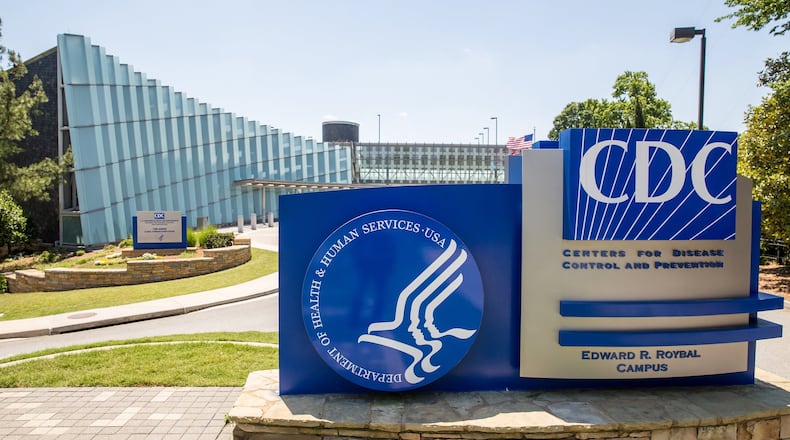A list of words shorter than a spelling test has caused a national political stir.
There were reports last week that analysts at the nation’s top public health agency, the U.S. Centers for Disease Control and Prevention — which is based in Atlanta — were given a list of forbidden words.
Senior agency budget officials reportedly said they were not to use the words in preparing the next year's budget documents. It emerged that similar prohibitions existed at other federal health offices.
The words included some that advocates argue are core to the mission of public health: “vulnerable,” “entitlement,” “diversity,” “transgender,” “fetus,” “evidence-based” and “science-based.”
According to the Washington Post, instead of “evidence-” or “science-based,” one suggested substitution was “CDC bases its recommendations on science in consideration with community standards and wishes.”
Jeff Graham, executive director of Georgia Equality, an advocacy group for lesbian, gay, transgender and bisexual people, said, “This is incredibly disturbing.”
Social media is hot with commentary on the story, Graham said, and his group is promising to get phone banks rolling Monday calling congressional offices when they open.
“Some folks were thinking they could do this without garnering much attention; clearly that has not happened,” Graham said. “Based here in Atlanta, the home of the CDC, we have a special responsibility on this.”
The CDC's new director, Brenda Fitzgerald of Georgia, responded to the furor on Sunday.
“I want to assure you there are no banned words at CDC,” she tweeted. “We will continue to talk about all our important public health programs.”
Still, the report that the words, which might have negative connotations for GOP politicians, were not to be used in the annual request to Congress for money drew ire.
Scientists and advocates said the best interpretation of the events was still problematic. Congress, more than anyone, needs to hear true, accurately descriptive words about public health, they said.
"Congress is going to be making policy about information coming from the government agencies," said Art Caplan, a medical ethicist at New York University's Langone Medical Center. "Whether it's about reproduction or flu vaccination or the health impacts of climate change. They have their hand on the pocketbook, and they need to be guided by the best evidence possible."
Dr. Wendy Armstrong, a nationally recognized public health expert on HIV/AIDS, added that “the use of words like science-based, evidence-based and words to describe subsets of individuals that have unique health experiences, like transgender, fetus, vulnerable, etc., are necessary.”
She said “censoring or discouraging their use impairs our ability as physicians and scientists to protect the individual health and the public health of Americans.”
Caplan cautioned not to be fooled into thinking the limited discouragement of their use wouldn’t have a larger effect.
“If somebody sends up a message from HHS or somewhere saying, ‘You know, it’d be better in terms of dealing with Congress if we make up words and don’t use things like ‘evidence,’ it’ll go farther.
“You don’t have to issue a mandate,” Caplan said. “You made your point. People heard you.”
The AJC reached out to a half-dozen Republican federal lawmakers on Sunday but none of them offered comment.
Democrats, on the other hand, pounced.
“From the very beginning this administration has dealt in fake news and alternative facts, so it is no surprise that it would impose language restrictions on agency employees,” said U.S. Rep. Hank Johnson, D-Ga. “Censorship and the propaganda that results is dangerous. It smacks of what totalitarian regimes do to obfuscate the truth.”
Public health science frequently makes use of the terms in the list. The CDC's own public statements have trumpeted its work with the words; for example, it has publicized steps to be taken with "vulnerable" populations, including teens or pregnant women vulnerable to e-cigarettes; children vulnerable to developmental delays resulting from issues like poverty; and Nigerian children vulnerable to death from starvation.
The Department of Health and Human Services released a statement suggesting nothing important had changed: “The assertion that HHS has ‘banned words’ is a complete mischaracterization of discussions regarding the budget formulation process.
“HHS will continue to use the best scientific evidence available to improve the health of all Americans. HHS also strongly encourages the use of outcome and evidence data in program evaluations and budget decisions.”
Keep Reading
The Latest
Featured





